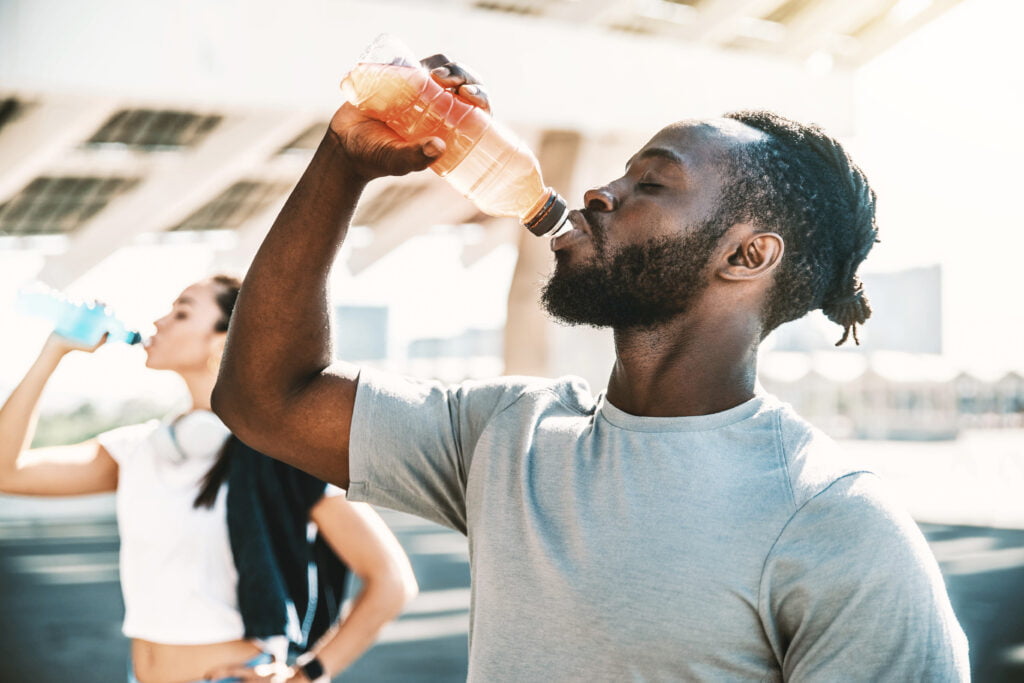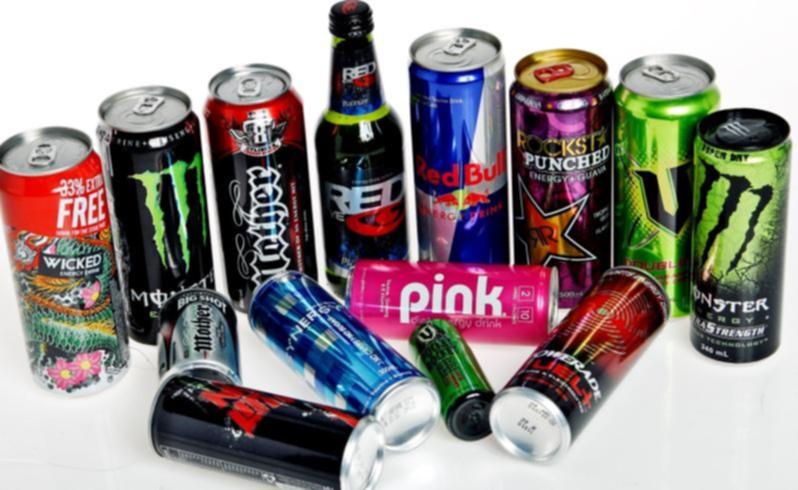The consumption of energy drinks has grown in popularity among young people, from kids to teenagers. Global sales of energy drinks are rising and have even surpassed those of conventional sports drinks. It’s now clear that energy drinks are not safe for young people, despite the fact that they are frequently marketed as healthy, performance-improving beverages. This has been the subject of numerous studies, and some important and unexpected findings have been made. Let’s first examine an energy drink’s ingredients.
What’s in an Energy Drink?
The majority of carbonated, sweetened energy drinks contain as much or more caffeine per serving than a cup of coffee. Some have more caffeine than five coffees. (For context, a regular 8-ounce cup of coffee has between 80 and 180 milligrams. The amount of caffeine in a 12-ounce can of cola is 29 mg.) Drinking energy beverages is advertised as a means to increase focus, physical vigor, and stamina. They usually include dietary supplements like ginseng, vitamins, guarana, the amino acid taurine, and other ingredients besides sugar and caffeine.
The caffeine content of beverages is regulated by the Food and Drug Administration (FDA) and is limited to 71 milligrams per serving; however, energy drinks are regulated as a food supplement rather than a beverage. As a result, energy drinks can contain significantly higher amounts, ranging from 80 milligrams to over 300 per serving. At least one study cited in the review found that the caffeine content of energy drinks ranged from 50 milligrams to over 500 per serving. According to the American Academy of Pediatrics, children should not ingest over 100 milligrams of caffeine per day.
Most energy drinks list caffeine and vitamins as the main ingredients. This makes them sound healthy and attractive, but that is false. Energy drinks claim to increase focus and improve performance. They contain a lot of added stimulants, such as:
Guarana. An herb used to prevent tiredness and improve mental speed. It also is used to promote weight loss and increase sexual desire. Guarana also contains caffeine. That makes the total amount of caffeine in the energy drink even higher.
Taurine. A supplement used to improve memory and endurance.
Ginseng. An herb used to help reduce stress, strengthen muscles, and improve endurance.
Synephrine (bitter orange). An herb used to promote weight loss.
L-carnitine l-tartrate (LCLT). A supplement used to increase energy, memory, and speed. It also is used to break down fat.
Yerba mate. An herb used to prevent tiredness and improve mood.
Gingko. An herb used to increase focus and prevent tiredness.
St. John’s Wort. An herb used to reduce stress and improve mood.
These aren’t always harmful by themselves. When combined together with caffeine, they can cause health issues.
What Are The Potential Health Risks of Energy Drinks?
The stimulating effects of energy drinks can lead to elevated heart rate and blood pressure. Although much of the concern regarding young people’s consumption of energy drinks has centered on the potential for cardiovascular health problems, newer research is focused on assessing whether these drinks pose risks to the developing brain. And although caffeine in the correct dose under the right circumstances can be neuroprotective, in excess, it is neurotoxic.
Many people are unaware that caffeine in particularly large amounts is dangerous and can even be lethal. Even in lesser doses, caffeine can cause insomnia, digestive upset, and irritability. Furthermore, fatigue in children and young adults can signal the need for increased rest rather than chemical stimulation.
The data today suggests that young people are better off restricting or avoiding energy drinks and other caffeinated beverages, despite the fact that taurine and caffeine can be beneficial in certain situations.
The amount of taurine per serving in energy drinks is another issue because it might be many times more than what is typically ingested in a day through meals. Taurine is regarded as a non-essential amino acid for humans, and taking excessive amounts of taurine may be harmful. The cardiovascular risk is increased when paired with caffeine.
Young people frequently combine energy drinks with alcohol, which is another problem associated to them. According to current studies, people who mix alcohol and energy drinks run a higher risk of binge drinking and alcoholism.
Although taurine can be neuroprotective in older mammals, there is some evidence that adolescent and young adult mice who are exposed to high levels of taurine may have impaired learning and memory. Rats treated with both taurine and alcohol showed a greater preference for alcohol. In addition, high taurine consumption was linked to increased alcohol consumption in female mice. In another study, mice receiving energy drinks combined with alcohol experienced increased anxiety.
The bottom line is that although caffeine and taurine can be helpful in specific circumstances, the current science suggests that young people are better off limiting or avoiding energy drinks and other caffeinated beverages. More research is needed to better understand when and if these substances are helpful for developing brains.
The structural structure that encloses the endothelial cells of cerebral capillaries is known as the blood-brain barrier (BBB). Its purpose is to act as a selectively permeable barrier for the brain parenchyma, and it does this typically by highly regulating the expression of endothelial tight junctions in the paracellular gaps. When the BBB is compromised, plasma-borne chemicals can enter the brain and cause neuroinflammation by activating astrocytes and microglia.
Chronically heightened microgliosis and astrocytosis increase oxidative stress, which subsequently encourages neuronal degeneration. It is true that BBB failure is frequently seen in a variety of neurodegenerative diseases, including Alzheimer’s disease and multiple sclerosis, indicating a causative relationship.
Alcohol Makes Things Worse
In addition to the concerns about consuming energy drinks on their own, experts also caution against combining alcohol with energy drinks.
Mpasi told Verywell that alcohol acts as a depressant while energy drinks are a stimulant, which can confuse your body’s neurotransmitters.
“Your brain is going to be getting a lot of different signals—you don’t know how your brain and your body will respond to drinking alcohol and an energy drink together,” she said.
In 2010, the FDA cracked down on caffeinated alcoholic beverages, which led companies like Four Loko to reformulate their recipe and remove the caffeine, guarana, and taurine from their products.
However, Jägerbombs, Vodka Redbulls, and other energy drink cocktails are still sold in bars and mixed at home. The CDC reported in 2017 that almost 32% of adults aged 19–28 consumed an energy drink with alcohol in the previous year.
Gulati told Verywell that combining alcohol with caffeine means it will take longer for the caffeine to leave your body.
“That means you’re stimulated for an even longer time than maybe you would be if you took either of them separately,” she said.
Experts say this additional stimulation can lead to people consuming more alcohol than they might otherwise. The CDC reported that young adults who consumed alcohol and energy drinks together were more likely to binge drink than those who did not mix these substances.
It Can Be Difficult to Consume Energy Drinks Safely
While a single energy drink may contain less than the 400 mg of caffeine considered safe by the FDA, people who rely on these drinks might find themselves consuming more than one to feel the same effects.
A 2015 study of nursing students using energy drinks to stay awake while studying for exams found that some of the students consumed as many as 30 energy drinks in a week.
“The effects that they might feel early on when they take these energy drinks and feel more awake and feel more stimulated tend to wear off in time,” Gulati said.
Some athletes also use energy drinks for performance, but experts say it is important to discuss the pros and cons with a trusted healthcare provider first.
“Don’t assume food and drink manufacturers have your best interests at heart,” Gulati said. “They’re just trying to sell something to you.”



Leave a Reply